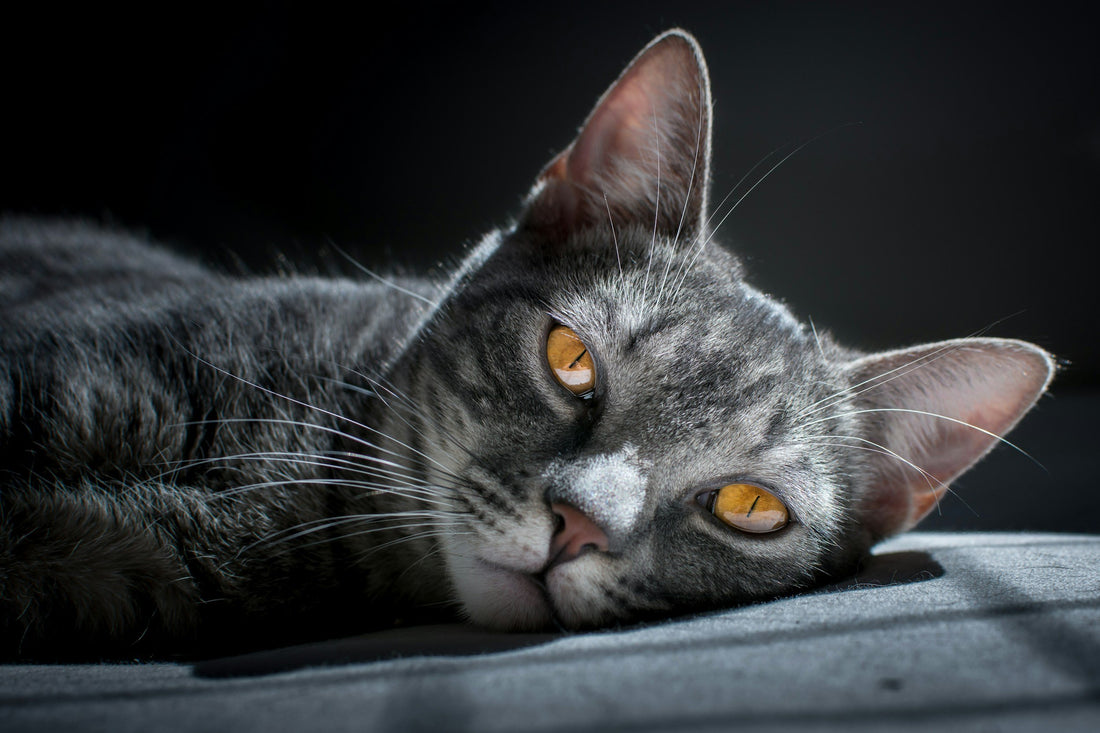
CBD for Cats: What Pet Owners Need to Know
Share
Introduction
As the popularity of CBD continues to rise, pet owners are increasingly exploring its potential benefits for their feline companions. CBD offers promising therapeutic effects for cats, addressing a range of health issues from anxiety and pain to inflammation and overall wellness. This comprehensive guide delves into the science behind CBD for cats, exploring its benefits, potential risks, and safe usage guidelines.
Chapter 1: Feline Endocannabinoid System
Understanding the Endocannabinoid System in Cats
The endocannabinoid system (ECS) is integral to maintaining homeostasis in mammals, including cats. It consists of endocannabinoids, receptors (CB1 and CB2), and enzymes that regulate various physiological processes such as mood, appetite, pain sensation, and immune function.
-
CB1 Receptors: Primarily found in the brain and central nervous system, these receptors influence functions like memory, motor control, and pain perception.
-
CB2 Receptors: Located mainly in the peripheral organs and immune cells, they play a crucial role in modulating inflammation and immune responses.
How CBD Interacts with the Feline ECS
CBD interacts with the ECS indirectly. Unlike THC, which binds directly to CB1 receptors causing psychoactive effects, CBD modulates the activity of the ECS by inhibiting the enzymes that break down endocannabinoids. This leads to enhanced endocannabinoid signaling and helps maintain physiological balance, potentially alleviating various symptoms in cats.
Chapter 2: Health Benefits of CBD for Cats
Alleviating Pain and Inflammation
One of the primary uses of CBD for cats is to manage pain and inflammation, which can arise from conditions such as arthritis or injury.
-
Pain Modulation: CBD can influence the ECS and other pain pathways, reducing the perception of pain.
-
Anti-inflammatory Effects: By interacting with CB2 receptors, CBD can lower the production of pro-inflammatory cytokines, helping to alleviate inflammation and associated pain.
Reducing Anxiety and Improving Mood
Cats can experience anxiety due to numerous factors, including changes in their environment, separation from their owners, or loud noises. CBD has shown potential in reducing anxiety and promoting a sense of calm.
-
Serotonin Receptors: CBD can influence serotonin receptors, which play a role in mood regulation.
-
Cortisol Levels: CBD may help regulate cortisol, the stress hormone, reducing anxiety and promoting relaxation.
Supporting Overall Wellness and Immune Function
CBD may contribute to general wellness in cats by supporting their immune system and overall health.
-
Immune Modulation: CBD's interaction with the ECS can help regulate immune responses, potentially reducing the frequency and severity of allergic reactions and autoimmune conditions.
-
Appetite and Digestion: CBD can stimulate appetite and aid in digestive health, which is particularly beneficial for cats with eating disorders or gastrointestinal issues.
Chapter 3: Potential Risks and Side Effects
Identifying and Managing Side Effects
While CBD is generally well-tolerated by cats, it is essential to be aware of potential side effects, which may include:
-
Drowsiness: High doses of CBD can cause sedation or lethargy.
-
Dry Mouth: CBD may reduce saliva production, leading to increased thirst.
-
Digestive Issues: Some cats might experience gastrointestinal disturbances, such as diarrhea or changes in appetite, especially when first introduced to CBD.
Safe Dosage Guidelines for Cats
Determining the correct dosage of CBD for cats is crucial to minimizing risks and maximizing benefits. Factors to consider include the cat's size, weight, and the condition being treated. It is advisable to start with a low dose and gradually increase it while monitoring the cat's response.
-
General Guidelines: A common starting dose is 0.1-0.2 mg of CBD per pound of body weight, administered once or twice daily.
-
Veterinary Consultation: Consulting a veterinarian experienced with CBD can provide personalized dosage recommendations and help monitor the cat's response to the treatment.
Long-term Safety of CBD Use in Felines
Long-term studies on the effects of CBD in cats are still limited. However, existing research and anecdotal evidence suggest that CBD is well-tolerated by most cats, even with prolonged use. Regular veterinary check-ups and monitoring can help ensure the ongoing safety and efficacy of CBD treatment.
Chapter 4: Research and Veterinary Insights
Overview of Current Research on CBD Use in Cats
Research on CBD use in cats is growing, providing valuable insights into its potential benefits and safety. Key studies include:
-
Osteoarthritis Management: Preliminary studies have shown that CBD can reduce pain and improve mobility in cats with arthritis.
-
Anxiety Reduction: Research indicates that CBD can help reduce anxiety-related behaviors in cats, such as excessive grooming or aggression.
Insights from Veterinarians and Case Studies
Veterinary insights and real-life case studies further illustrate the practical applications of CBD in managing various health conditions in cats:
-
Case Study 1: A 10-year-old cat with arthritis showed significant improvement in mobility and reduction in pain after two months of CBD treatment.
-
Case Study 2: A 3-year-old cat with severe anxiety responded positively to CBD, with noticeable reductions in anxiety-related behaviors such as excessive meowing and hiding.
Conclusion
CBD offers promising benefits for managing various health conditions in cats, from chronic pain and inflammation to anxiety and overall wellness. Understanding the science behind CBD and its interaction with the feline endocannabinoid system is crucial for its effective and safe use. While potential risks and side effects exist, they are generally mild and manageable with proper dosage and monitoring. As research continues to expand, CBD may become an increasingly valuable tool in feline medicine, enhancing the quality of life for countless cats.






























































